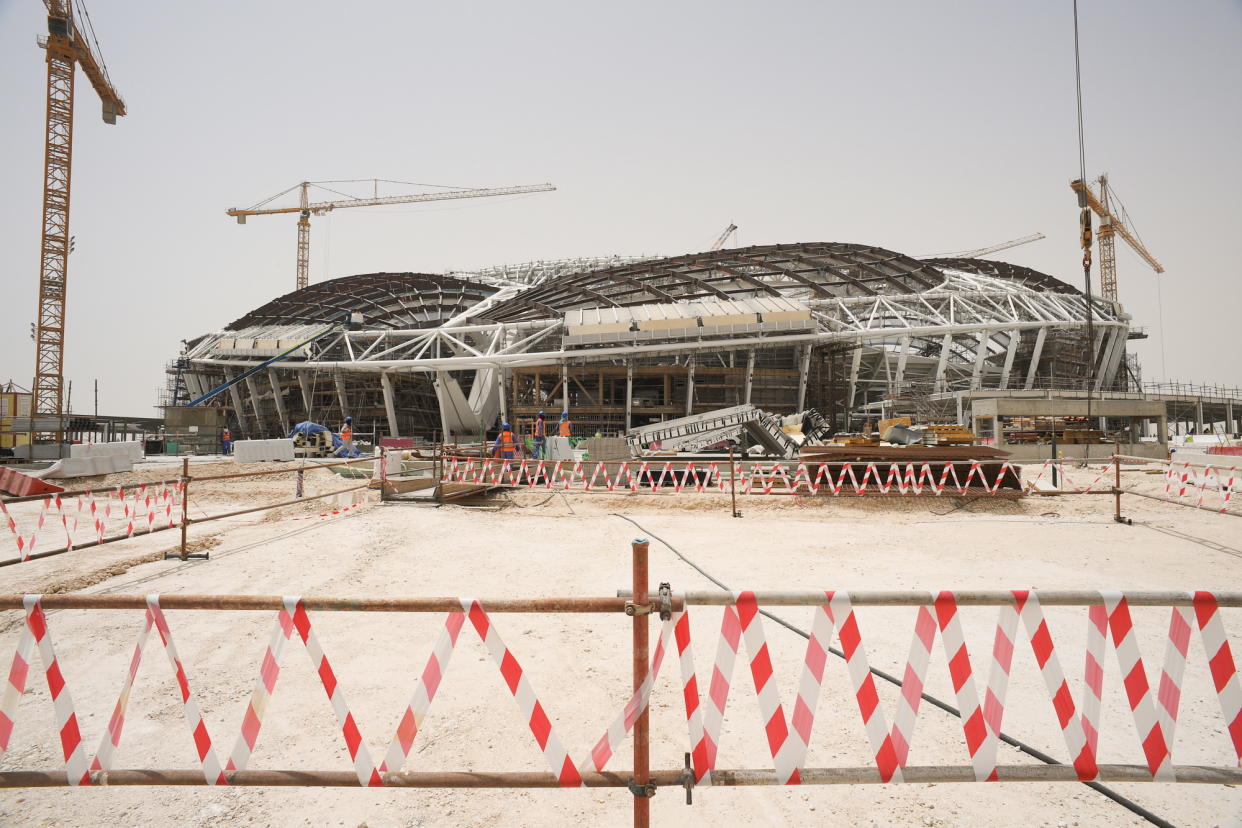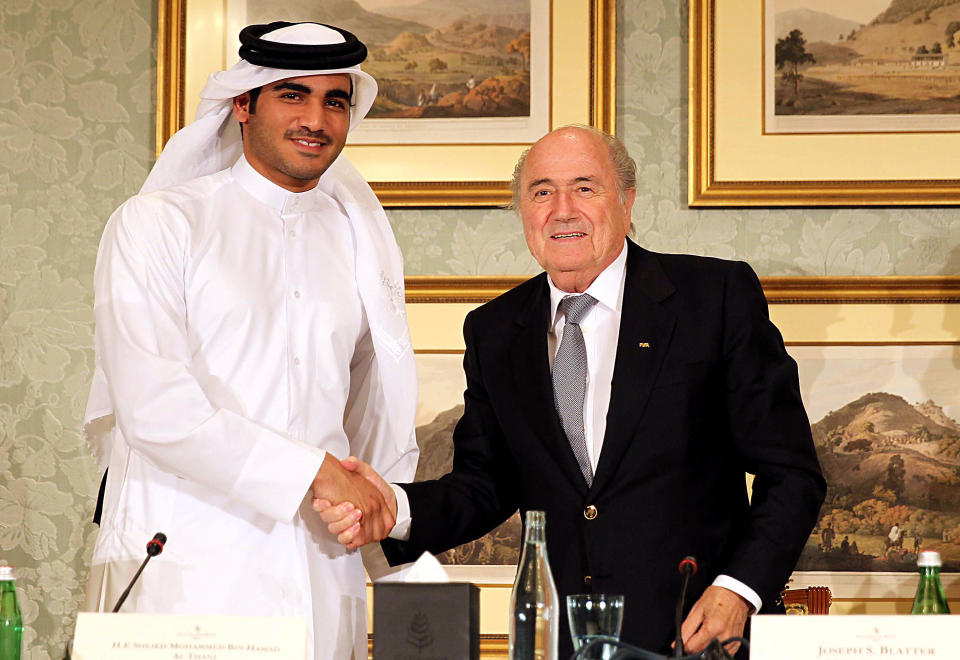World Cup workers still not being protected in Qatar, according to Amnesty

Amnesty has released a report stating that people working in Qatar ahead of the 2022 World Cup continue to be mistreated, despite assurances from authorities.
Ahead of the tournament, according to the human rights organisation, workers continue to be exploited, going unpaid and having their rights violated.
It comes after new laws were passed in Qatar that were supposed to improve conditions for workers, including those working on various 2022 World Cup projects.
With an agreement with the United Nations' International Labour Organisation, the laws are intended to improve workers’ rights, including the introduction of a minimum wage, insurance and the ending of the controversial sponsorship of labour.
Qatar’s labour sponsorship is a system that involves workers’ passports being handed over to their employers when they join the company. Given that the vast majority of workers are immigrants, mostly from Bangladesh, it makes it incredibly difficult for them to then change jobs or leave the country, because they need their employers’ permission to get their passport back.
READ MORE: Cristiano Ronaldo admits Arsenal move was 'one step' away before Manchester United transfer
The 52-page report focused on three cleaning and construction companies, not specifically focused to the World Cup. It stated that hundreds of workers were being employed without being paid, with over 1,600 complaints submitted by workers.
Stephen Cockburn, Amnesty International's deputy director of global issues, said: "Despite the significant promises of reform which Qatar has made ahead of the 2022 World Cup, it remains a playground for unscrupulous employers.
"Migrant workers often go to Qatar in the hope of giving their families a better life - instead many people return home penniless after spending months chasing their wages, with too little help from the systems that are supposed to protect them."

The abuse of human of human rights has been a constant problem since the World Cup was awarded to Qatar since 2010. In response to the ongoing problems, last year it was announced that Qatar would introduce a Workers' Support and Insurance Fund. This was supposed to provide workers who had not been paid with compensation, but has gone completely unfunded, according to Amnesty.
Fifa responded to the report by Amnesty. They said: "We would like to note that, as confirmed by Amnesty International, the report does not concern World Cup sites. The Supreme Committee for Delivery & Legacy has also confirmed that the contractors referenced in the report have never been engaged on World Cup projects in Qatar.
"We however acknowledge the importance of the new labour dispute committee as an important part of the broader labour rights reforms taking place in Qatar. We know that the Qatari authorities are working intensely in collaboration with the International Labour Organisation and other stakeholders with a view to further improve the effectiveness of this complex but vital mechanism.
A spokesman at the Government Communications Office of the State of Qatar said: “We are aware of a recent report published by Amnesty International concerning the status of workers in Qatar.
“Qatar has made substantial progress on labour reforms. We continue to work with NGOs, including the International Labour Organisation, to ensure that these reforms are far-reaching and effective. Any issues or delays with our systems will be addressed comprehensively. We have said, from the outset, that this would take time, resources and commitment.”
Featured from our writers
Kane still confident of Champions League progress despite Olympiacos collapse
Shakhtar Donetsk 0-3 Manchester City: Mahrez, Gundogan and Jesus score in comfortable victory
Champions League: PSG hammer Real Madrid, Atletico earn Juventus draw
Fernandinho declares himself ready for extended run as Manchester City's emergency centre-back

